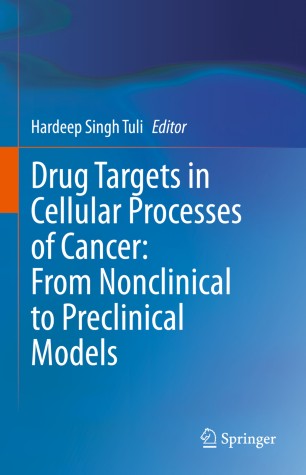

Most ebook files are in PDF format, so you can easily read them using various software such as Foxit Reader or directly on the Google Chrome browser.
Some ebook files are released by publishers in other formats such as .awz, .mobi, .epub, .fb2, etc. You may need to install specific software to read these formats on mobile/PC, such as Calibre.
Please read the tutorial at this link: https://ebookbell.com/faq
We offer FREE conversion to the popular formats you request; however, this may take some time. Therefore, right after payment, please email us, and we will try to provide the service as quickly as possible.
For some exceptional file formats or broken links (if any), please refrain from opening any disputes. Instead, email us first, and we will try to assist within a maximum of 6 hours.
EbookBell Team

5.0
50 reviewsThis book explores potential cellular drug targets for cancer therapy. The first couple of chapters describe conventional treatment (radiotherapy, chemotherapy, and immunotherapy) & detection (biosensors) strategies for cancer. In contrast, the subsequent chapters address the role of cyclin-dependent kinases and cell cycle regulatory proteins in the growth of cancer cells and their potential as target for cancer treatment. The book then discusses the regulation of various pro-apoptotic and anti-apoptotic proteins via chemotherapeutic drugs. In addition, it examines the molecular mechanisms that are critical for mediating autophagic cell death in cancer cells. It subsequently reviews the role of reactive oxygen (ROS) species during carcinogenesis and during chemotherapy, and the potential of anti-inflammatory routes for the development of new therapeutic modulators. Lastly, it describes therapeutic strategies that target the tumor microenvironment and various angiogenic pathways for the treatment of cancer and to develop personalized medicine. Given its scope, the book is valuable resource for oncologists, cancer researchers, clinicians, and pharmaceutical industry personnel.